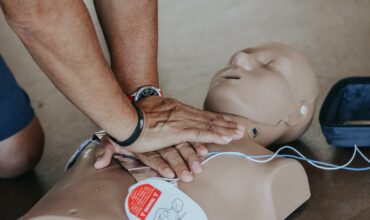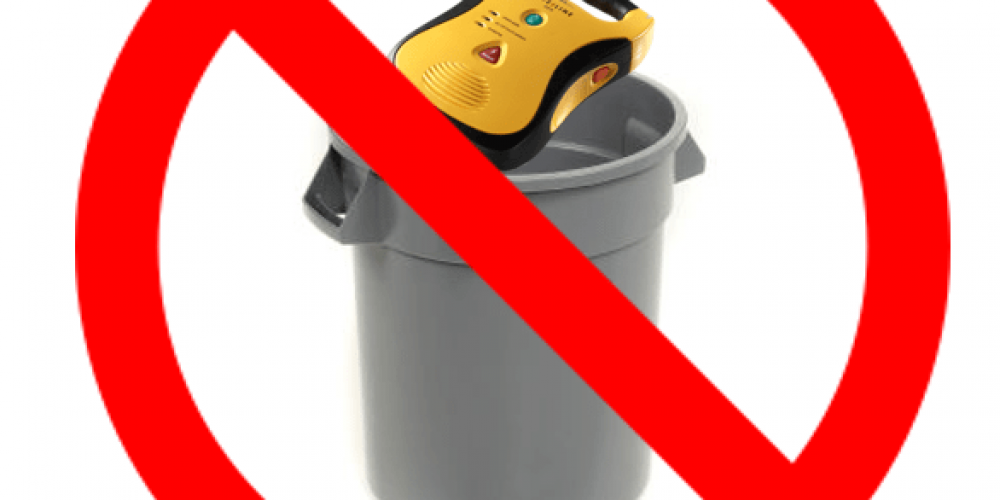- Your cart is empty
- Continue Shopping


Do you find that when replacing your AED supplies you are unsure how to dispose of the old supplies? Your AED, and its accessories, should be disposed of according to state and federal guidelines, through an authorized recycling facility. We’ll break down what needs to happen to each supply…
AED electrodes, also known as pads, are made of non-hazardous materials and can be safely disposed of in a regular trash can. They do not require special handling or disposal methods.
AED batteries are considered hazardous waste material because they contain lithium-sulfur dioxide. They must be recycled properly to avoid potential hazards. When lithium batteries are not disposed of properly, they can spark and start dangerous fires. Therefore, it is important to use ground transportation when shipping batteries for recycling.
AEDs are electronic devices that contain delicate parts such as circuit boards, which must be recycled properly to avoid potential hazards. They will be able to provide you with the necessary information and direct you to the proper place to send your AED for recycling.
You can contact your local emergency medical services, contact the AED manufacturer, or use national recycling programs. Here are some you can look into:
We commend you for your effort to keep our earth clean and green! If you have any questions about AED donations, old but not expired AED supplies, or a question about the items you plan on recycling, give us a call, leave us a comment down below, or email us at customerservice@aedbrands.com
Implementation Guide